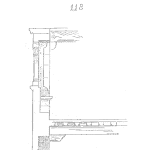
MTBF is Just the Mean, Right?
A conversation the other day involved how or why someone would use the mean of a set of data described by a Weibull distribution.
The Weibull distribution is great at describing a dataset that has a decreasing or increasing hazard rate over time. Using the distribution we also do not need to determine the MTBF (which is not all that useful, of course).
Walking up the stairs today, I wondered if the arithmetic mean of the time to failure data, commonly used to estimate MTBF, is the same as the mean of the Weibull distribution. Doesn’t everyone think about such things?
Doesn’t everyone think about such things? So, I thought, I’d check. Set up some data with an increasing failure rate, and calculate the arithmetic mean and the Weibull distribution mean. [Read more…]













